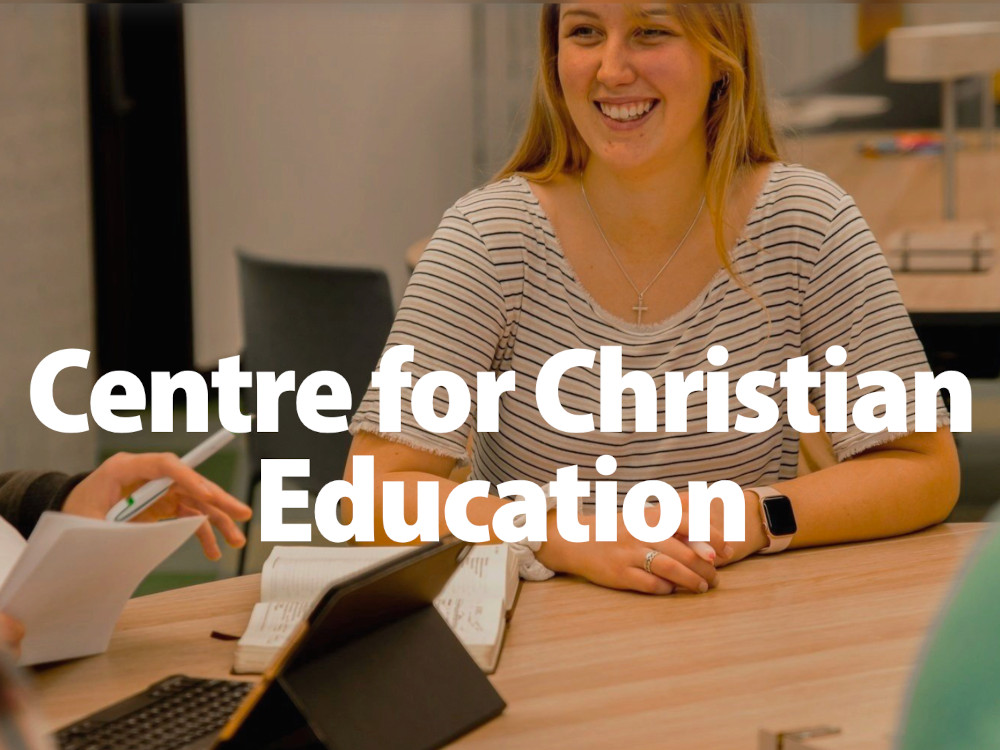A new course for students aiming to become teachers from a Christian college comes with an innovative approach – don’t come to us for your teaching degree, but come to us first to learn a Christian approach to education. Youthworks College, run by the Sydney Anglicans, has set up a new arm called the Centre for Christian Education (CCE). They are building on their record of producing ministry workers with children and young people.
“The way I talk about it is gospel expertise for Christian teachers, says Mike Dicker, the Principal of Youthworks College. “There’s two actual things that the CCE is trying to do. One is to make Christian teachers sharper with how they engage the hearts and minds of their students, children and young people with the gospel.
“So we want sharp and gospel-ready Christian PE teachers, history teachers, English teachers, science teachers, woodwork teachers, the whole range. We also want to provide a pathway for Christian schools to recruit Christian students into the teaching profession because we need more Christian teachers in our Christian schools. I would say we also need more Christian teachers in every school.”
Dicker hopes that Christian schools will encourage their students to become teachers. Especially from schools that have “default pathways” into other fields – which describes many Sydney Anglican schools. “I think there is a fairly probably over-representation of people that can go into law, medicine, finance and things like that.”
CCE is designed to make becoming a teacher with a sense of vocation made more intense by their Christianity. “I want schools not just to be thinking about who are the Christian students they have who they should tap on the shoulder and say, ‘Why don’t you become a teacher?’ but also then to have a pathway that they can then funnel them into and say, Look, if you do this CCE one year program, you can learn theology, Biblical studies, do some ethics, think about sexuality and identity, and you also do the new unit we wrote for this, about constructing a theology of teaching.
“And you can do that while you work at our school three days a week, which builds a partnership between us. In doing this program, potential teachers also get to experience a school environment. And then they go to a secular university like Sydney Uni, Macquarie, Charles Sturt, or elsewhere for their education degree.”
Dicker agrees that theological* teacher education has been a bit of a missing link in his denomination and says, “People have been asking for this for decades.”
But why not offer a teaching degree like other Christian higher education providers like Morling the Baptist College in Sydney and Perth, Alphacrucis, the Pentecostal College, or Excelsia? Dicker wonders whether that could risk creating a “Christian bubble.”
“These colleges are offering teaching degrees, and we’re not offering teaching degrees. We’re offering what we specialize in, theological ministry education, to engage the hearts and minds of children and young people. That’s, that’s what we do. That’s what we know.
“We are giving an option for people who want to get their theological and ministry, gospel foundations, and then go through their teaching degree elsewhere. But we want students who go into those institutions already with a solid and thoughtful pedagogy of what it looks like to be a Christian teacher and to engage with those kinds of secular ideas as well, rather than someone going from a Christian school into a Christian institution to get their teaching degree and then back into a Christian school, which I think whether they intended or not ends up with a cloistered, Christian kind of bubble for teachers that have not had to engage with the animosity or the secular ideas in university institutions.”
The Other Cheek pressed Dicker on this point. What if he had the resources to run excellent teaching degree programs? “No, I don’t think I would do a teaching degree; I would still believe this is the best way. And I think one of the pedagogical advantages of Youthworks College in the way it’s been set up is that if you’re doing parish children and youth ministry, you’re here Monday and Tuesday, but you’re working in a church three days a week. It’s bringing those two things together that teaches students the skills of applying theology into practical contexts and bringing their practice to theology and reviewing it.
“I think actually, that’s just an excellent pedagogical model. And so doing two days a week of theology and biblical studies, and working in a school, a secular school, as well as Christian schools, will just help teach you the way to bring theology to bear and help you refine what you do in light of your theology. And so I think if you can learn that skill, through the Centre for Christian Education, I think that it makes a logical next step to go to a secular university, to then engage with the world of ideas.”
The CCE has started small with a tiny cohort of students this year, but Dicker sees keen interest from Sydney Anglican schools and beyond. Feedback has been that schools prefer a two-day to three-day split, giving more time for the students in school. He has also learned that heads of schools are hard to catch up with but are keen to have more well-formed Christian teachers.
*Clarification: Youthworks asked The Other Cheek to add this word, although it was not used in the respose to our question which was about Teacher Training in general.


I could have really benefited from this in the early 1980s. Glad it’s started now.
Hi, I’m Gilford Kove from Papua New Guinea and very interested this.
I’m an Anglican, and work as a nurse and I’m very interested in this approach.
Please I need necessary information in regards to this.
Go here: https://www.youthworkscollege.edu.au/christianteachers